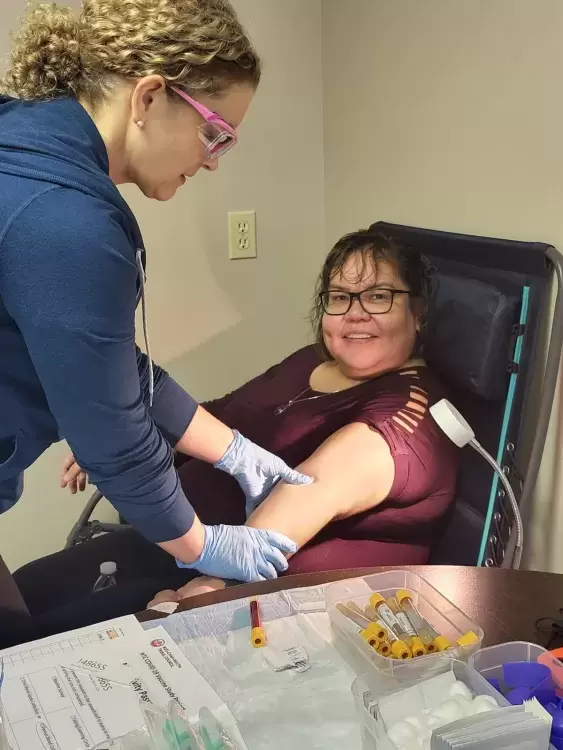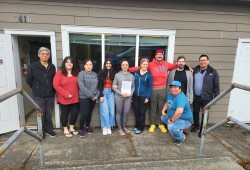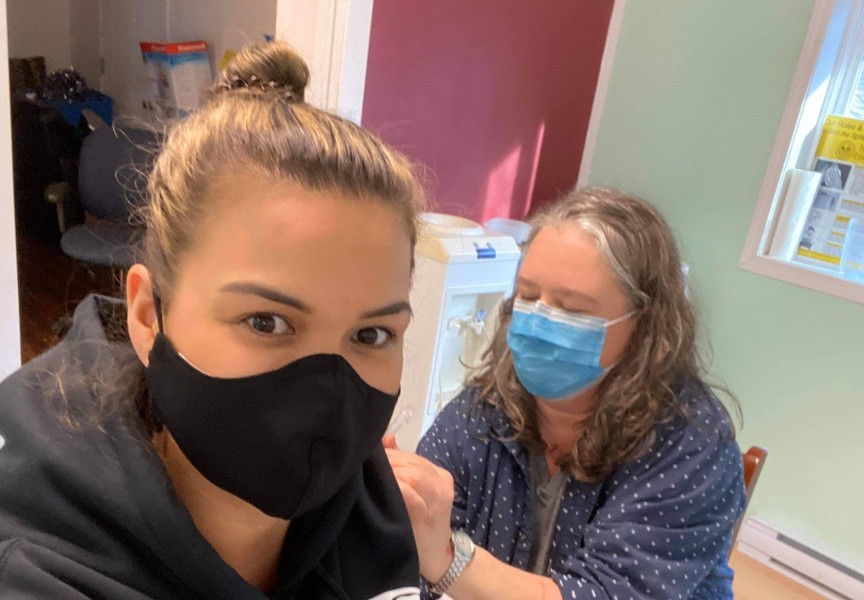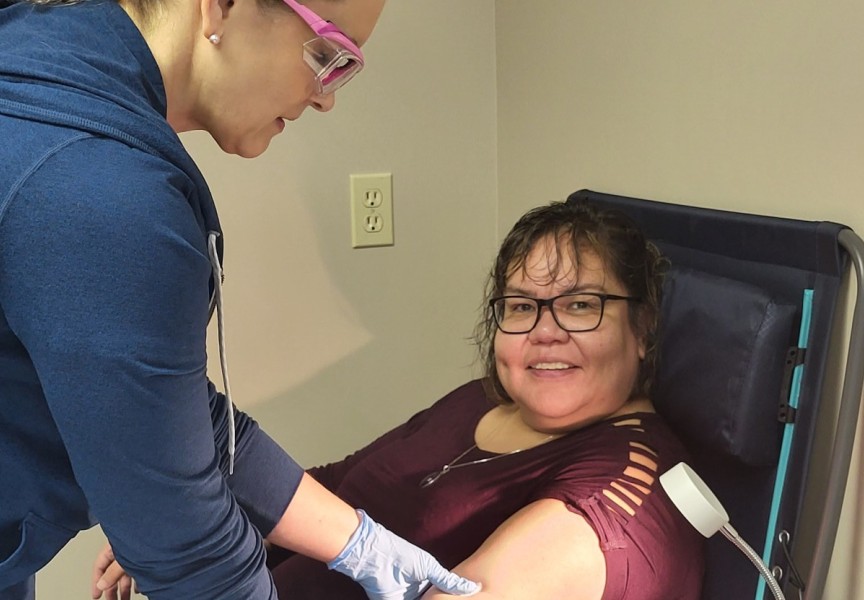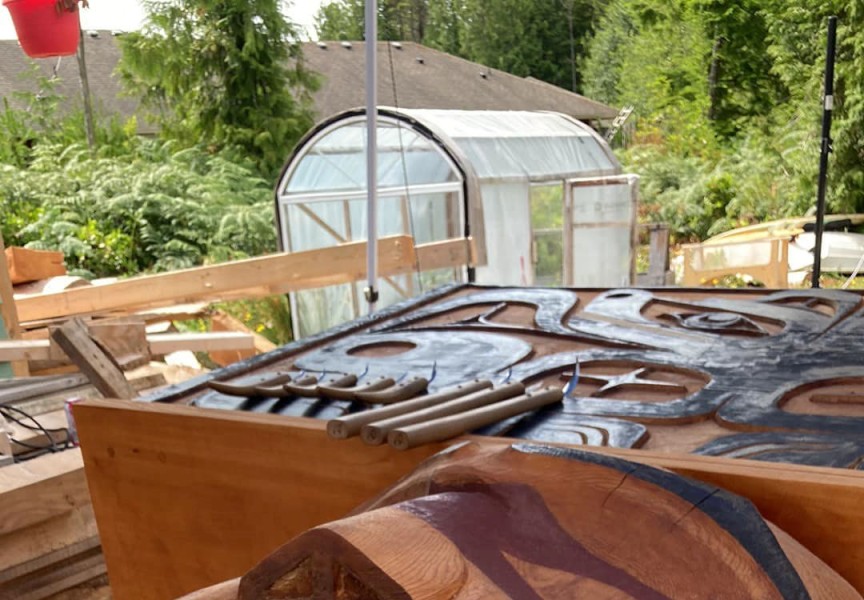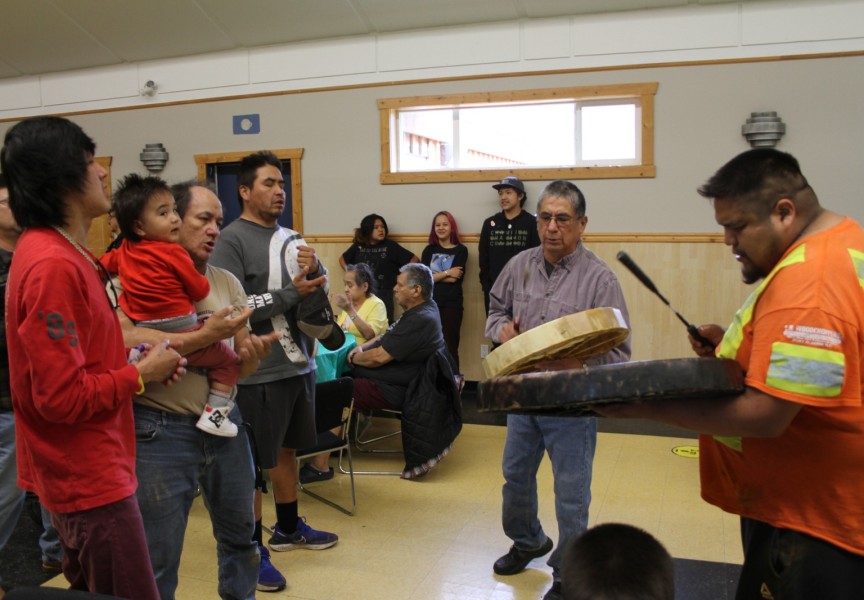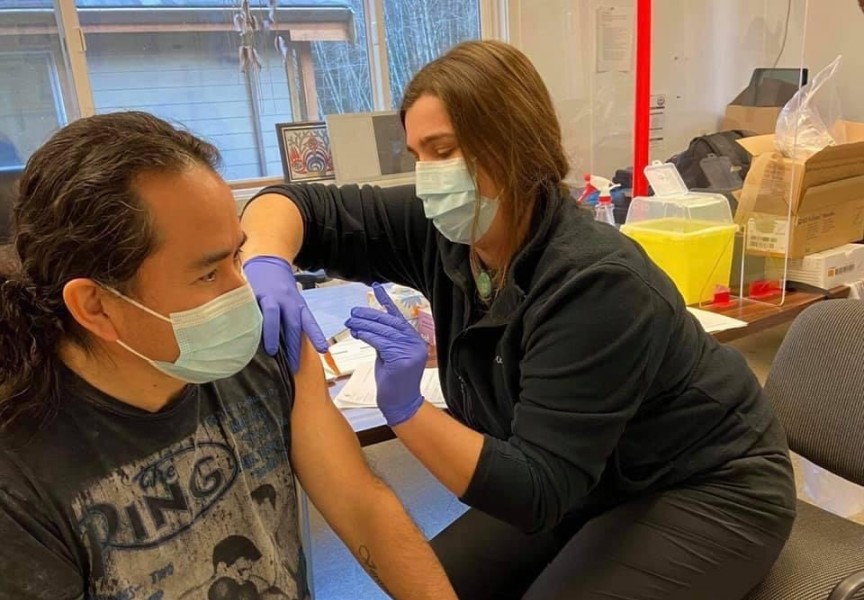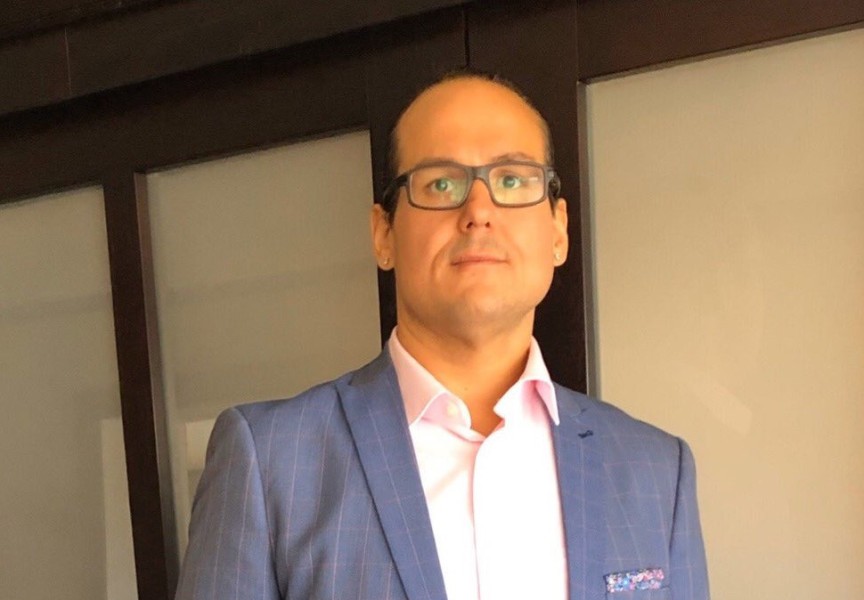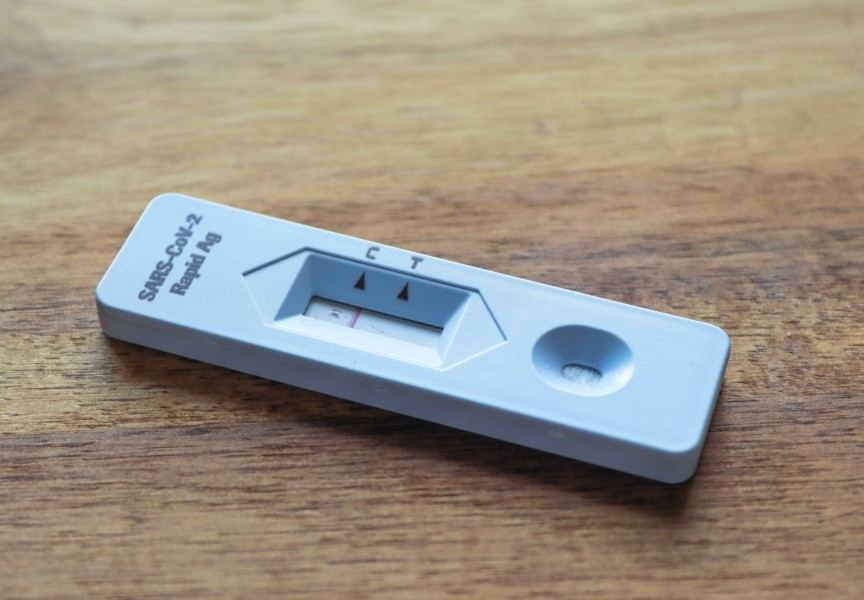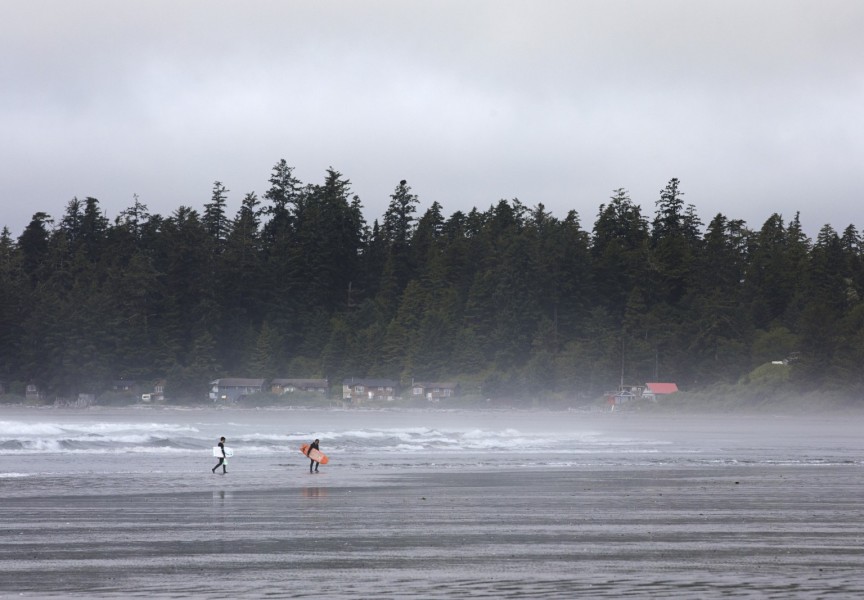The Nuu-chah-nulth Tribal Council is conducting a research project that they hope will document the Nuu-chah-nulth experience during the COVID-19 pandemic, both in the health care system and within First Nation communities.
“The NTC directors wanted to document the Nuu-chah-nulth experience around the vaccine and the pandemic,” said NTC Health Director, Lynnette Lucas, in May 2022, when the study was in its early stages.
According to the project website, the aim is to understand immune response to COVID-19 infection and vaccination, the safety and effectiveness of the COVID-19 vaccine, as well as the impacts of the pandemic on Nuu-chah-nulth communities.
The study is important because it was recognized that the COVID-19 pandemic posed a serious health risk to Indigenous communities, so much so that the Canadian government prioritized them to receive vaccine.
“We want to know, what was the impact of COVID on our bodies? What is our immune response? Were we protected by vaccines? Should we continue to get boosters?” said Dr. Roger Boyer, the project’s research director.
To understand immune response to COVID-19, willing participants will have blood drawn by nurses. The collected samples will be secured by Boyer, who is an Anishinabek man from Ontario. He says he will personally drive the samples to the laboratories for analysis.
Those who prefer not to have their blood drawn may participate in another way. Nuu-chah-nulth people are invited to take part in sharing their stories about the COVID-19 pandemic or vaccination experiences.
There are three options for sharing stories in the project and participants may choose to take part in any or all of them. One option is the elder-led sharing, where participants look back on pandemic experiences with the health care system to inform intergenerational teaching, wellness and future vaccines.
Another option is the family sharing circle, or the Youth Photovoice, where photos are shared to tell stories of the pandemic experience.
The NTC’s project team includes community-based researchers, support workers, project coordinators, and a data manager. Simon Fraser University and the National Microbiology Laboratory are working with the team as academic partners.
Participation in the project is completely voluntary and those involved may withdraw, without repercussion, at any time.
“The study is open to any Nuu-chah-nulth person, no matter where they live or whether or not they’ve had COVID,” said Boyer.
The first project clinic was held in March, and since then nearly 25 per cent of the blood samples needed to reach the 500-sample goal has been achieved. The clinics will run until September.
Clinics in Port Alberni are held every second Thursday at the Wellness Centre at 3416 Fourth Avenue. More information and clinic schedules can be found at nuuchahnulthhealthresearch.org.
Each participant will receive one or more gift cards, depending on which activities they volunteer for.
Information collected from the study will inform NTC leadership about the needs of their communities and people, allowing them to advocate for health care resources. It may also be useful for Indigenous communities if they must manage another pandemic in the future.

